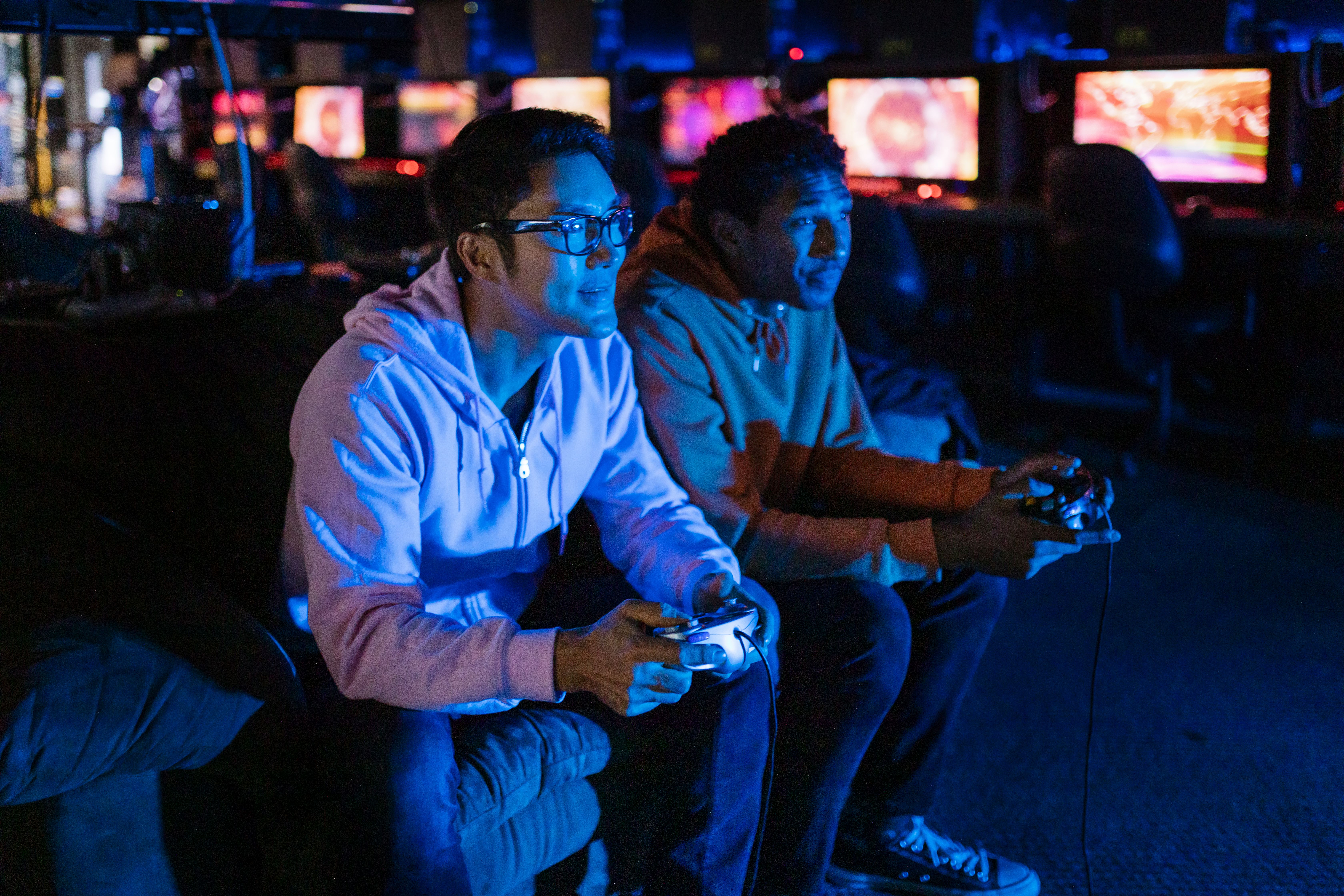[ad_1]

Video gaming offers immersive experiences, fosters social connections, and provides a platform for entertainment and skill development. However, as technology advances, a few potential cons of gaming have emerged as well. This includes the risks of a sedentary lifestyle and addiction.
Another risk that has gained significant attention is the potential impact of blue light from screen use on our eyes. Many myths and misconceptions surround blue light, causing confusion and concern among gamers. In this article, we will provide a clearer understanding of the facts to help gamers make informed decisions about their eye health.
Understanding blue light
Blue light is a short-wavelength, high-energy light in sunlight and various artificial sources, including gaming screens. The following statements are popular myths surrounding blue light.
Myth 1: Blue light causes permanent eye damage
Fact: No concrete evidence supports the claim that exposure to blue light from screens leads to permanent eye damage. However, prolonged and excessive exposure to any bright light source can cause temporary discomfort, such as eye strain and fatigue.
Myth 2: Blue light is the sole cause of digital eye strain.
Fact: Factors such as prolonged screen time, improper viewing distances, poor posture, and reduced blinking are what contribute to digital eye strain. Blue light filters and other preventive measures, such as special lens designs, can simply help alleviate symptoms.
Myth 3: All blue light is harmful
Fact: Natural sunlight contains blue light, which is essential for our well-being. It helps regulate our sleep-wake cycle and boosts mood. The concern arises from excessive exposure to artificial blue light sources in close proximity and for prolonged periods.
Understanding the risks
While the risks of blue light are often exaggerated, it’s essential to acknowledge its potential effects on our well-being. For one, exposure to blue light in the evening can suppress melatonin production in our body, thereby disrupting sleep.
Otherwise, extended gaming periods can lead to eye strain, dryness, and fatigue. Blue light emitted from screens can contribute to these symptoms, but they are not the sole cause. Regular breaks and the 20-20-20 rule (looking 20 feet away for 20 seconds every 20 minutes) can help reduce eye strain.
Understanding protective measures
Protective measures are crucial in minimizing the potential risks of blue light exposure during gaming sessions. One effective protective measure is the use of blue light filters, which are available in various forms.
Gamers can wear specialized glasses while on extended gaming sessions. The blue light glasses from reputable eyewear stores are designed to selectively filter harmful blue-violet light that’s between 400-455nm. Online retailer Eyebuydirect also offers additional features for blue light lenses like advanced blue-violet filters or premium anti-glare coating. These blue light glasses do not block healthy blue-turquoise light from passing through the lenses.
While this won’t help prevent eye damage caused by strain, blue light glasses can filter out enough high-energy blue light for gamers to sleep better at night. Longer and better rest quality can help alleviate eye strain accumulated over the day.
Otherwise, gamers can optimize software applications and screen protectors to reduce blue light exposure further. Some gamers may worry that this may compromise color performance. However, the latest developments from Eyesafe, a global leader in blue light mitigating technology, boasts of a DTX technology that maximizes blue light protection without impacting color gamut, white point, and luminance. This promises a rich, vivid display for all gaming experiences.
Otherwise, gamers can also try practicing healthy habits — such as limiting screen time, taking regular breaks, and optimizing the gaming environment — to mitigate potential risks. Remember, balance is key for you to embrace the joys of gaming while prioritizing your visual well-being.
[ad_2]
Source link




















